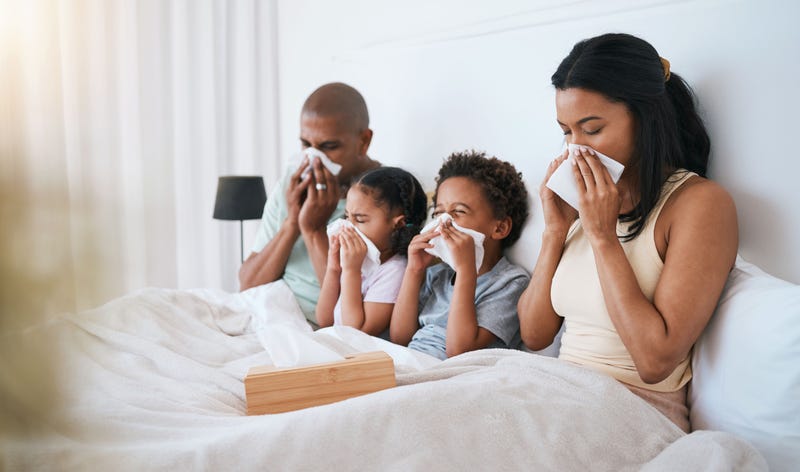
Dallas recently secured its spot as the fourth most challenging city for allergy sufferers according to the Asthma and Allergy Foundation of America.
Parents face the daunting task of deciphering whether their child's sniffles are due to a cold or allergies.
Dr. Preeti Sharma, a renowned pediatric pulmonologist at Children's Health and associate professor at UT Southwestern, says one thing parents can consider is the hereditary nature of seasonal allergies.
"If your child begins showing symptoms such as a runny nose, itchy eyes, and a scratchy throat, and these symptoms echo a family history of allergies, it's a strong indicator they might be dealing with allergies," Dr. Sharma says.
If it is allergies, Dr. Sharma says pediatricians will likely lead parents to manage the symptoms.
"Antihistamines and nasal steroid sprays are commonly prescribed by pediatricians to alleviate congestion and swelling in the nose," Dr. Sharma advised.
Practical steps like keeping windows closed, reducing outdoor activities during high pollen counts, and having children shower before bedtime can make a significant difference in preventing allergy symptoms.
However, distinguishing between a cold and allergies remains a challenge.
"It's not always clear-cut. Some children with colds exhibit similar symptoms to allergies, such as congestion, without the typical signs of a cold like fever," Dr. Sharma points out.
This similarity makes it vital for parents to observe their child's symptoms closely and consider an allergy consultation if the symptoms persist or follow a seasonal pattern.
So is there any actual "cure" for seasonal allergies?
"There are a lot of things that are well tolerated that suppress the symptoms and treat the symptoms," Dr. Sharma adds. "Immunotherapies, although primarily managed by allergists, can significantly reduce the severity of allergic reactions over time. And so if you have a child who has significant symptoms not well controlled with medications or anything else, it's probably worthwhile to speak to your healthcare provider about whether or not there are other therapeutic options that may prevent the severity of the symptoms or prevent the symptoms entirely."
LISTEN on the Audacy App
Tell your Smart Speaker to "PLAY 1080 KRLD"
Sign Up to receive our KRLD Insider Newsletter for more news
Follow us on Facebook | Twitter | Instagram | YouTube
